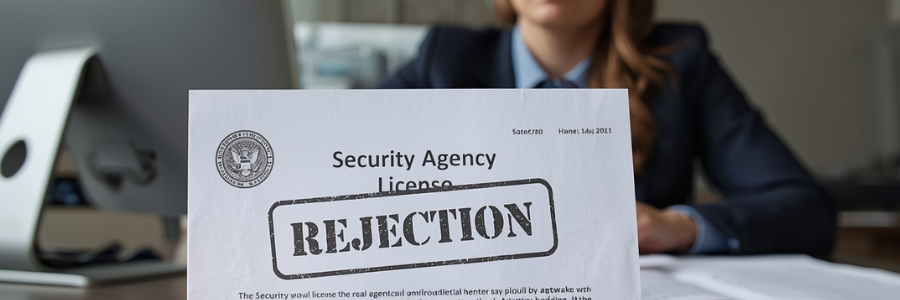Multi-State Security Agency Licensing: Common Challenges & Solutions
Private security agencies face numerous challenges when expanding into multiple states. PSARA registration is a state-specific licensing. For the multi-state management of private security agencies, they need to meet state and national compliance. The varying state-specific PSARA registration requirements, differing police and public order regulations, and the administrative burden are common challenges faced by multi-state security agencies. But these challenges can be avoided by leveraging the best practices. This comprehensive guide will explore how you can operate your private security agency across multiple states.
1. What Is Multi-State Security Agency Licensing?
In India, the private security agencies are first required to get the state’s controlling authority’s permission to operate legally. Each state has its own controlling authority with legislation. Meanwhile, if an agency wants to operate in multiple states, it is required to meet the standards required. For each state, agencies need to get a separate license. This is because one state’s license doesn’t give the authority to operate in another. Meanwhile, having the necessary license is mandatory for each state for your multi-state agency. It proves that all legal requirements have been fulfilled by the security organization.
User Query: Private Security Agency License: Key Compliance You Must Know
2. Why Do Security Agencies Need Separate Licenses for Each State?
Under the Private Security Agencies (Regulations) Act, 2005, each state has the authority to issue the PSARA license to private security agencies. This is why you need a separate PSARA license for your state:
- State-Level Licensing: The PSARA Act highlights that each state’s government must select a controlling authority. This controlling authority is responsible for managing all matters related to private security licensing. It commonly includes issuance, renewal, and cancellation. In short, the one license will be valid within the boundaries of the state.
- Variation in Regulations: Each state’s controlling authority implements its own rules, fees and timeline for applications. Even the requirements for the police verification vary. It makes it difficult for the agencies to operate a single license in a separate state due to different legislation.
For example, if a private security agency wishes to operate in states like Delhi and Haryana, it must get a separate license.
- Compliance & Oversights: Implementing the state-level licensing system allows the controlling authority to manage security agency operations within its jurisdiction. It helps to remain compliant with relevant statutes and public orders.
3. Key Challenges in Multi-State Security Agency Expansion
The multi-state security agencies face significant challenges during the PSARA registration. The PSARA primarily stems from the state-specific variations in regulations and the need for a separate, extensive compliance process for each state. Common difficulties consist of:
- Variation in State-Specific Rule: The PSARA Act, 2005, specifically outlines the critical laws; however, the liability is with the agencies to tackle variation per state. But individual state governments have designed their specific laws and PSARA registration requirements. There is a large disparity in the documentation, duration of validity, and renewal. In some states, the license is valid, but it is valid for only one year.
- Need for Separate License: A single PSARA license for multiple states is not applicable. To operate in multiple states, the private security agencies must obtain a separate certificate from the controlling authority. For this, you may need to repeat the process multiple times.
- Complexities & Time-Consuming Police Verification: The acquisition of a police NOC is a key phase in the PSARA registration process. This phase can be slow, and it is particularly slow if the directors or people of interest have lived in different states, because the police verification process can vary from state to state.
- Documentation and Paperwork Hurdles: The application will require paperwork, and any inaccuracies or lack of information could create delays or result in a rejection. The multiple states’ requirements for documentation create significant additional administrative burdens.
- Ensuring Consistent Training Standards: The agencies are to ensure they adequately train their personnel at a PSARA-approved training institute promptly to satisfy the requirement for training. As per the PSARA Act, each state has variations in its recognized training institutes. The agencies must register the MOU (Memorandum of Understanding) with government-recognized institutes in each operational location.
4. Practical Solutions to Overcome Multi-State Licensing Challenges
Follow these solutions to avoid the multi-state licensing challenges:
Hire a Professional Consultant
Leveraging the right PSARA consultant helps significantly to overcome unnecessary challenges. The PSARA license agents possess in-depth knowledge regarding the Private Security License (Regulation) Act. Their expertise helps to navigate the state-specific complexities and ensures that all documents are accurate.
Conduct Internal Background Checks
Before the formal application, verify the records of all personnel by conducting background checks. Be sure they have no criminal records and have undergone the police verification procedure.
Obtain a License Separate for Each State
Must obtain the separate PSARA license for each state in which you wish to work. Do not use your state’s security license in another state; it can raise potential challenges.
Implement Compliance Management System
Go through each state’s monitoring statutory requirements. Stay updated on rule amendments and ensure you apply for the renewal on time.
Note: Must apply for the PSARA Act license renewal at least 45 to 90 days prior.
Leverage Technology for Data Storage
If you are operating a private security department in multiple states, keeping all states’ data secure is your responsibility. For data storage, utilize the cloud-based technology systems.
Prepare Documents in Advance
As each state has its own legislation for the documentation, prepare the document in advance. Go through each state’s document requirements.
Final Discussion | Apply for PSARA License for Multi-State
Managing a private security agency in multiple states can be challenging. This is because, as per each state’s laws, the businesses are required to meet different compliance, record, and documentation requirements. There may be greater complications and challenges in any of the above and/or other activities. However, acting proactively in these areas gives the security agencies the best opportunity to navigate the particulars of multi-state PSARA licensing successfully. Adequate planning in regard to multi-state PSARA registration will allow the security agency to comply with the PSARA and operate within the confines of the law in all of India. Do you want to collaborate with a consultant? In an attempt to reduce the likelihood of rejection, LegalRaasta professionals assist in navigating this intricate, multifaceted, state-specific process with specialized attention to detail.
Most Commonly Asked Questions
- Is it possible to use a security license in another state?
Ans. No, a specific state’s private security license cannot be used in another state. For that state, a separate license.
- Which license is applicable for a security agency in India?
Ans. For operating a private security agency in India, the PSARA license is mandatory. The relevant state’s government issues the license.
- How do I switch my PSARA license to another state?
Ans. You cannot transfer your PSARA license from one state to another. In the new state where you intend to operate, you will need to submit a new license application.
- How long can a PSARA security license be used?
Ans. In most states of India, the security license is valid for a continuous 5 years.
- What is the purpose of PSARA?
Ans. The Government of India introduced the PSARA Act in work to ensure the standardization of security services, including protecting the clients from fraud, exploitation, etc.










